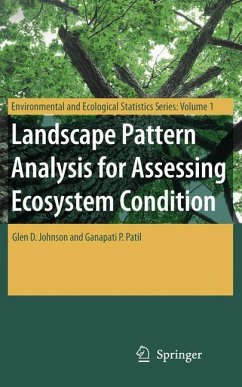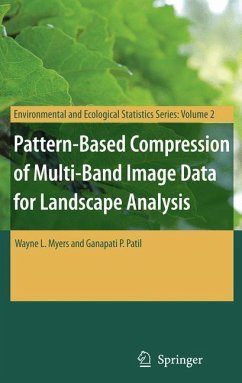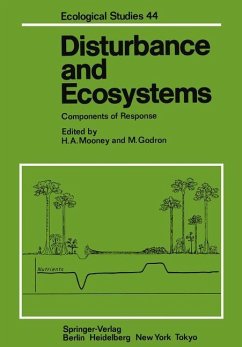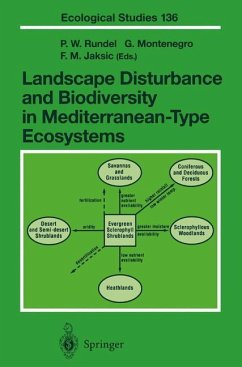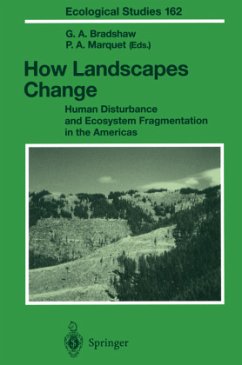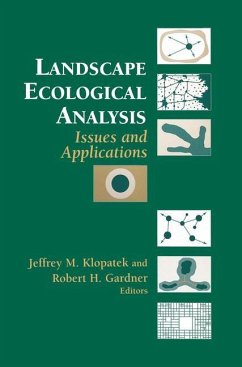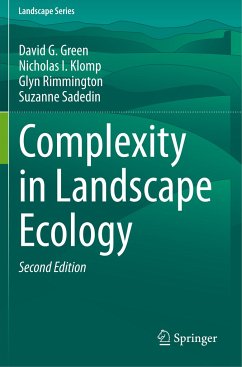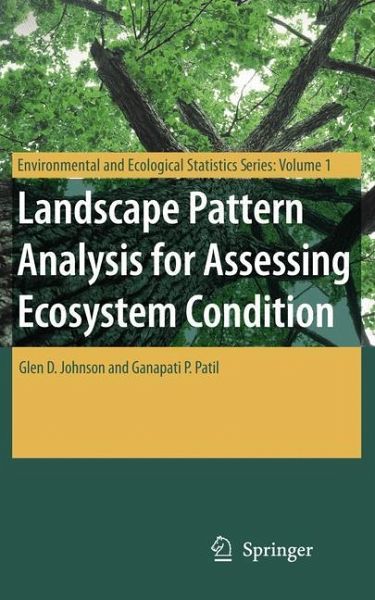
Landscape Pattern Analysis for Assessing Ecosystem Condition
Versandkostenfrei!
Versandfertig in 6-10 Tagen
113,99 €
inkl. MwSt.
Weitere Ausgaben:

PAYBACK Punkte
57 °P sammeln!
One of our greatest current challenges is the preservation and remediation of ecosystem integrity. This requires monitoring and assessment over large geographic areas, repeatedly over time, and cannot be practically fulfilled by field measurements alone. Remotely sensed imagery plays a crucial role by its ability to monitor large spatially continuous areas. This technology increasingly provides extensive spatial-temporal data; however, the challenge is to extract meaningful environmental information from such extensive data. This book presents a new method for assessing spatial pattern in rast...
One of our greatest current challenges is the preservation and remediation of ecosystem integrity. This requires monitoring and assessment over large geographic areas, repeatedly over time, and cannot be practically fulfilled by field measurements alone. Remotely sensed imagery plays a crucial role by its ability to monitor large spatially continuous areas. This technology increasingly provides extensive spatial-temporal data; however, the challenge is to extract meaningful environmental information from such extensive data. This book presents a new method for assessing spatial pattern in raster land cover maps based on satellite imagery in a way that incorporates multiple pixel resolutions. This is combined with more conventional single-resolution measurements of spatial pattern and simple non-spatial land cover proportions to assess predictability of both surface water quality and ecological integrity within watersheds of the state of Pennsylvania (USA).



